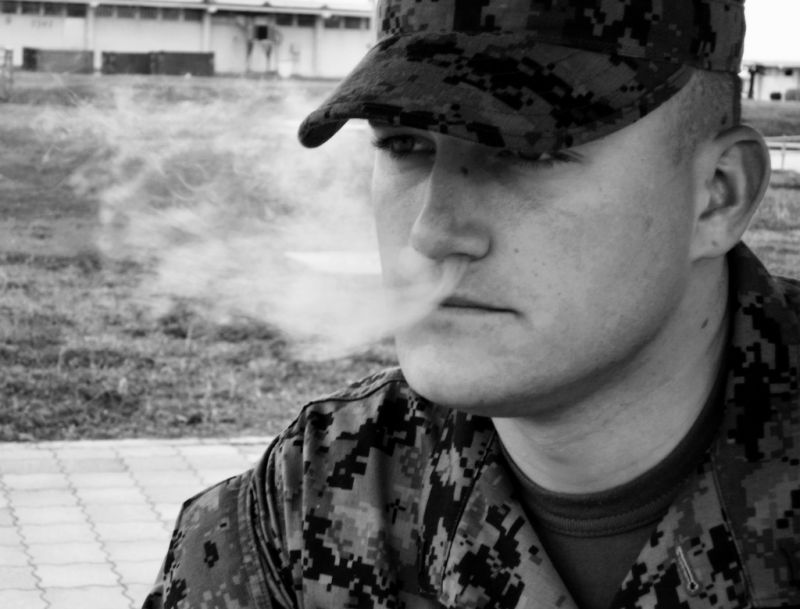
Jayel Aheram/<a href="http://www.flickr.com/photos/aheram/">Flickr</a>
US troops have long been able to purchase products at a discount. But what happens when those discounts are even deeper than the Defense Department allows? And they’re for harmful products? Tobacco is a case in point. A new Public Radio investigation finds that soldiers on some bases can buy cigarettes and chewing tobacco for up to 30% less than they’d pay in local stores: that’s far more than the 5% price-drop allowed by the Department of Defense (DoD).
The reason for the disparity in prices is often faulty research. Sometimes the DoD representative who’s comparing on-base and off-base prices will reference a store at a Reservation or at a Coast Guard base where tobacco products are already discounted. So in effect, the military is giving a discount on top of a discount.
Not that soldiers are complaining. Military personnel are much more likely to use tobacco products than non-military: 32% of active-duty personnel uses tobacco, versus about 20% of the general population. Many troops only started using tobacco when they enlisted, and say smoking and chewing helps alleviate the stress (and boredom) that come with the job.
But the American Lung Association finds that soldiers who smoke are less fit, more likely to sustain injuries, and more likely to be stressed out than their non-smoking counterparts. Even the Defense Department is wising up to the costs of tobacco products: it spends around $1.6 billion a year on related health costs and the Veteran’s Administration spends much more battling long-term effects. The Defense Department gave a plea last year for their “active duty and retired servicemembers and their families to make a resolution to quit tobacco” and pointed interested parties to the DoD’s Train2Quit tobacco cessation program, www.ucanquit2.org. If the DoD is really serious about reducing tobacco use, they might want to consider doing what civilians have already done: make tobacco more expensive. Or at the very least, reduce the discount.





